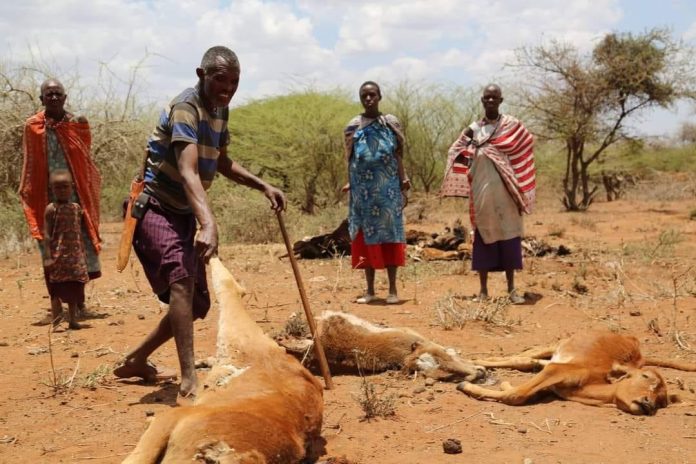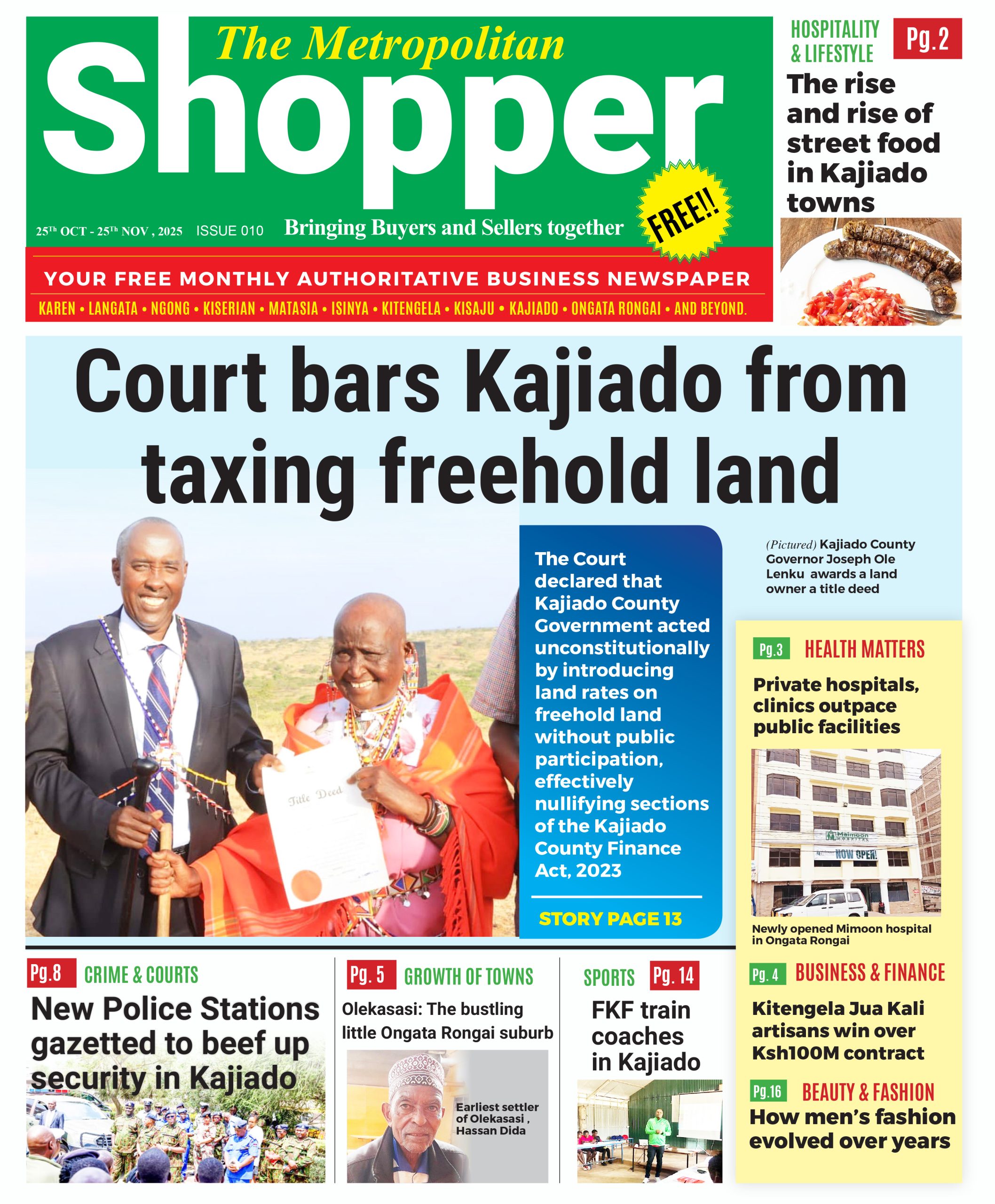As the sun scorches the plains of Kajiado and the clouds refuse to gather, one thing is certain, there shall be no rains for the next days. A painful silence hangs over the carcasses of dead livestock scattered across the dry earth.
Many herders are feeling the heat of the climate change conversation as they helplessly watch their animals die.
Despite repeated advisories from government agencies and NGOs urging early sale of livestock to avoid financial collapse, hundreds of pastoralists in Kajiado have chosen to hold on.
To them, selling a cow is seen as a betrayal of identity, pride, and the ancestral legacy of the Maa community.
“We were told to sell, but how do you sell your history?” asks Naisianoi Ole Kinyua, a herder from Mashuuru. “These cows are our wealth, our dowry, our dignity.”
ALSO READ:
The National Drought Management Authority (NDMA) has flagged Kajiado as one of the counties at risk of severe food insecurity. Data shows dwindling pasture and water sources, with livestock mortality rising sharply in the past two months.
Local markets have seen a surge in distressed sales, with emaciated animals fetching as little as KSh 1,500, barely enough to cover transport costs. Traders are reluctant to buy, and veterinary officers warn that disease outbreaks could follow if carcasses are not disposed of properly.
“We’re seeing a collapse of the pastoral economy,” says Dr Esther Mwangangi, a livestock economist. “But it’s also a collapse of trust between herders and the institutions meant to protect them.”
Efforts to introduce livestock insurance and climate-smart grazing practices have faced resistance, partly due to low awareness and deep-rooted customs. Some herders accuse county officials of failing to drill boreholes or stock emergency feed reserves, despite budget allocations.
ALSO READ:
Meanwhile, youth in Kajiado are increasingly abandoning pastoralism, seeking jobs in Nairobi or turning to boda boda businesses. Elders worry that the drought is not just killing animals but also eroding a way of life.
“We need solutions that respect our culture but also save our future,” says Josephine Ntaati, a community mobilizer. “Otherwise, we’ll keep burying our cows.”
As the October rains remain uncertain, farmers are faced with the dilemma of selling their livestock to survive or hold on and risk losing everything.
By Masaki Enock




